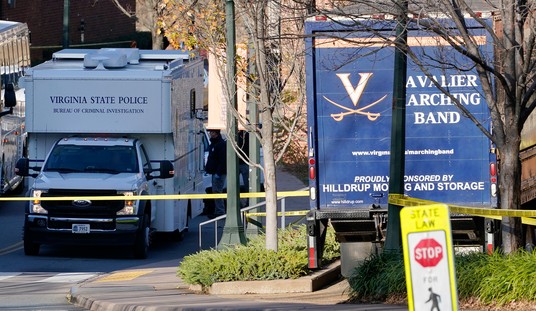The second day of the Israeli Presidential Conference has concluded, with plenty of interesting — if sometimes one-sided — debate on policy. In bouncing from session to session, I caught bits and pieces of arguments, some of which caught my ear, especially when Lawrence Summers started defending Barack Obama on economics. Despite having an approval rating in the low teens among Israelis in general, panelists and attendees at the Tomorrow 2011 conference have a much higher ratio of supporters. Since I didn’t catch all of Summers’ remarks, I won’t cover them here, but he and other speakers seem to be going out of their way to express support for the American President.
There was still plenty of fascinating discussion, primarily for me in the opening plenary session. Retired General Amos Yadlin, former head of IDF intelligence, spoke at length about the external challenges facing Israel. While calling himself an optimist, Yadlin had plenty of less-than-rosy observations to share with the audience, including a passage near the beginning that evoked Donald Rumsfeld. He called the unforeseen Israel’s greatest challenge; as no one could have predicted the emergence of cyberspace 25 years ago (in which Yadlin insists the Israelis can compete effectively), it’s the unknown unknowns that worry Yadlin most.
Yadlin framed the future as a challenge of competitions between Iran’s pursuit of nuclear weapons and the anticipated democratization of the Arab nations. Niall Ferguson threw some cold water on the latter point later in the session, but Yadlin was more optimistic. At the very least, Yadlin believes that the Arabs are being forced to look inward for the source of their miseries instead of having Israel as a scapegoat, which Yadlin predicts will be a “transformative event” in the region.
Tzipi Livni then addressed the conference, I believe as a last-minute addition. She spoke forcefully for the need for direct negotiations, saying “every moment of delay is a moment wasted.” The two-state solution, Livni said, was the only way to preserve the nature of the Jewish state thanks to the demography of Israelis and Palestinians — a point that my friend Carl in Jerusalem (whom I met later in the day) disputes. Livni accused the current government of weakness in its indecision and called for Israelis to unite around a single plan, and a new vision for Zionism.
Later in the day, I got an opportunity to talk at length with former Consul General to New York Alon Pinkas, also a frequent contributor to Fox News, the Jerusalem Post, and a regular in Politico’s “The Arena” feature. Pinkas was a very gracious interview subject, as you can see from the length of the interview, which goes for almost 30 minutes. We did about ten minutes of off-line prep for the interview and another five or so afterward. The sound gets a little low on Pinkas’ side, thanks to an error I made in setting the microphone, but his in-depth answers are worth the effort:
Put Pinkas in the turf between Yadlin and Bernard-Henri Levy one side of the optimism scale and Niall Ferguson (whose name I mispronounced in the interview) on the other. Pinkas has few illusions about Palestinian leadership, and he agreed when I suggested that a Fatah-Hamas alliance puts Israel back at square one. Still, Pinkas says he’s more concerned about Israel than the Palestinians, which is why he believes that Israel needs to press for negotiations. “The lousiness of this neighborhood is not going to go away any time soon,” Pinkas says, but that’s why Israel can’t wait for long to do what it can to end the standoff. Doing nothing and demanding better partners for peace won’t work, even if the Palestinians don’t provide a real partner for peace at the moment.
Tomorrow, I’ll have an interview with Eliot Abrams for another American perspective on these issues.








Join the conversation as a VIP Member